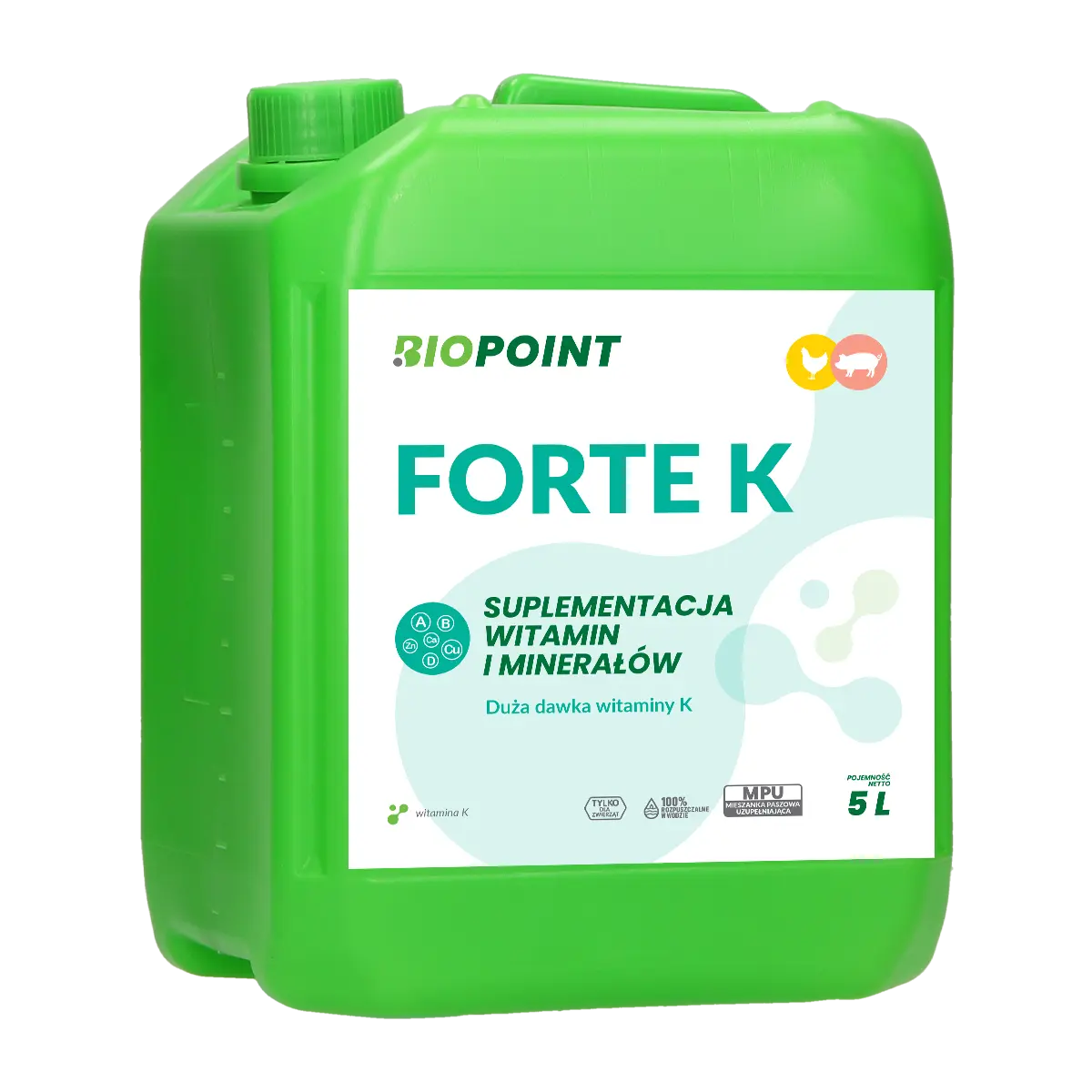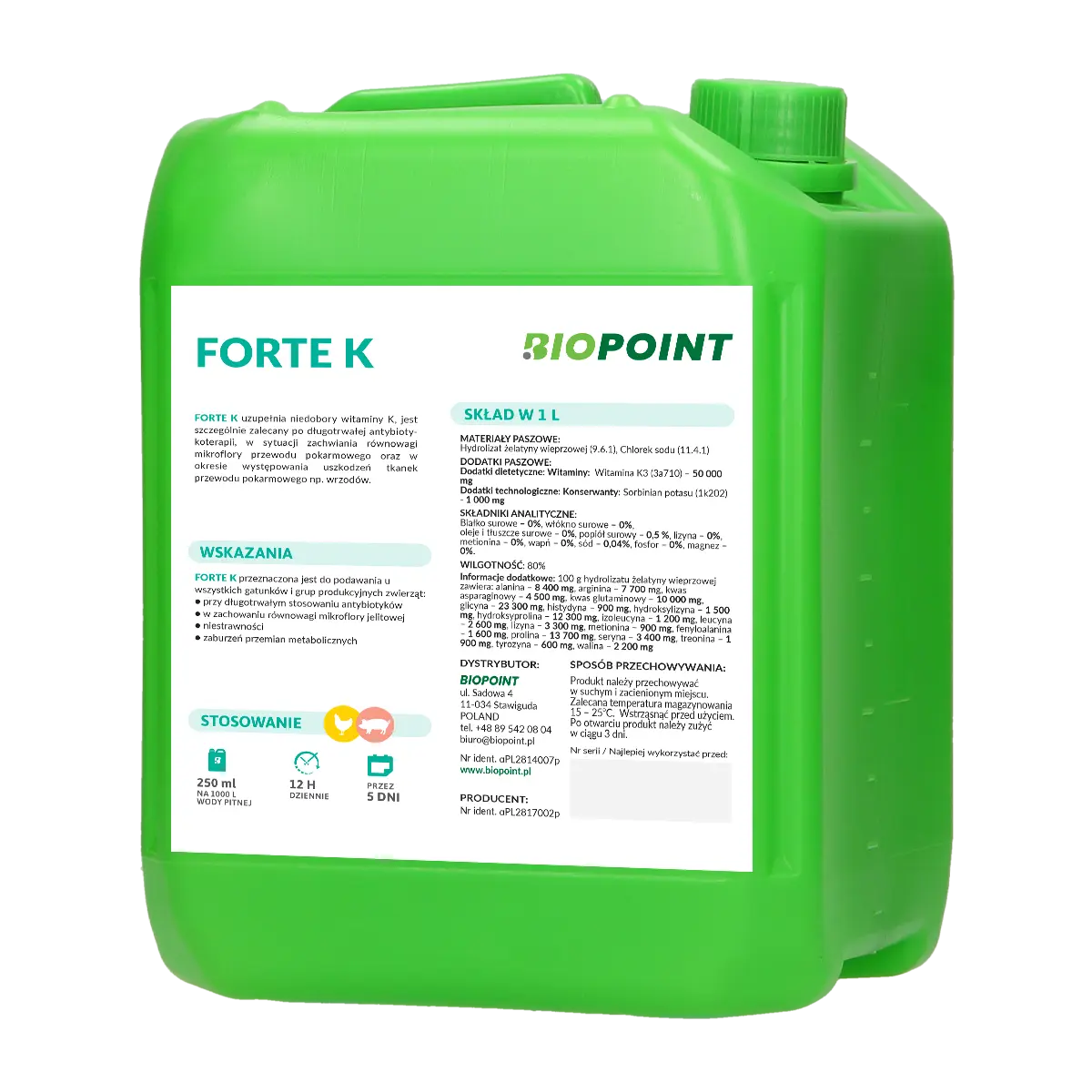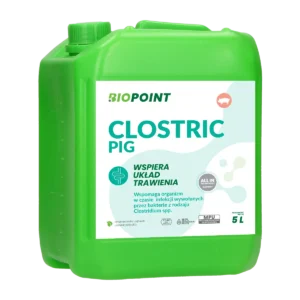FORTE K
- Large dose of vitamin K
- Supports the condition of the gastrointestinal mucosa
- Recommended after a gastrointestinal infection
Apply for a free sample
We are glad that you noticed our unique products. To request samples of our products, please provide us with your details. We will contact you to verify and fulfill your request.
Download product leaflet
We are glad that you would like to receive a leaflet about this product. In order to send it to you, please provide us with your e-mail address to which we will send our leaflet.
Ask a question
If you have any questions or concerns, we are always at your disposal and will be happy to answer any messages. Fill in the form below and we will get back to you immediately.
Product type: liquid
Available capacity: 1L, 5L
How does FORTE K work?
The product supplements vitamin K deficiencies. It is especially recommended after long-term antibiotic therapy, in situations of imbalance of the gastrointestinal microflora and during the occurrence of damage to gastrointestinal tissues, such as ulcers. Vitamin K is crucial in blood clotting processes, as it is necessary for the carboxylation of glutamic acid residues in the molecules of proteins that determine this process (including prothrombin). Amino acids are the basic building blocks of connective tissue and muscle. Access to a wide range of readily available amino acids contributes to normal growth and development of the body. They influence the functioning of the body due to their broad spectrum of actions, in every aspect of physiological processes. They take part in key biochemical processes, including cellular oxidation, synthesis of heme, nucleic acids, hormones, and can also affect nutrient absorption or fat metabolism.
Recommended support during:
- period of increased demand for vitamin K
Expected results
- Supports the condition of the gastrointestinal mucosa
- Recommended after a gastrointestinal infection
How to dose FORTE K?
| How to dose Forte K? |
|---|
| Standard: 250 ml/1000 l of drinking water, 12 hours a day, 5 days |
Composition in 1L/1kg
FEED MATERIALS
Pork gelatin hydrolyzate (9.6.1), Sodium chloride (11.4.1)
FEED ADDITIVES
Dietary additives: Vitamins: Vitamins: Vitamin K3 (3a710) – 50,000 mg
Analytical ingredients
Crude protein – 0%, crude fiber – 0%, crude oils and fats – 0%, crude ash – 0.5%, lysine – 0%, methionine – 0%, calcium – 0%, sodium – 0.04%, phosphorus – 0%, magnesium – 0%
Humidity: 80%
Additional information:
100 g of pork gelatin hydrolyzate contains: alanine – 8,400 mg, arginine – 7,700 mg, aspartic acid – 4,500 mg, glutamic acid – 10,000 mg, glycine – 23,300 mg, histidine – 900 mg, hydroxylysine – 1,500 mg, hydroxyproline – 12,300 mg, isoleucine – 1,200 mg, leucine – 2,600 mg, lysine – 3,300 mg, methionine – 900 mg, phenylalanine – 1,600 mg, proline – 13,700 mg, serine – 3,400 mg, threonine – 1 900 mg, tyrosine – 600 mg, valine – 2,200 mg






































